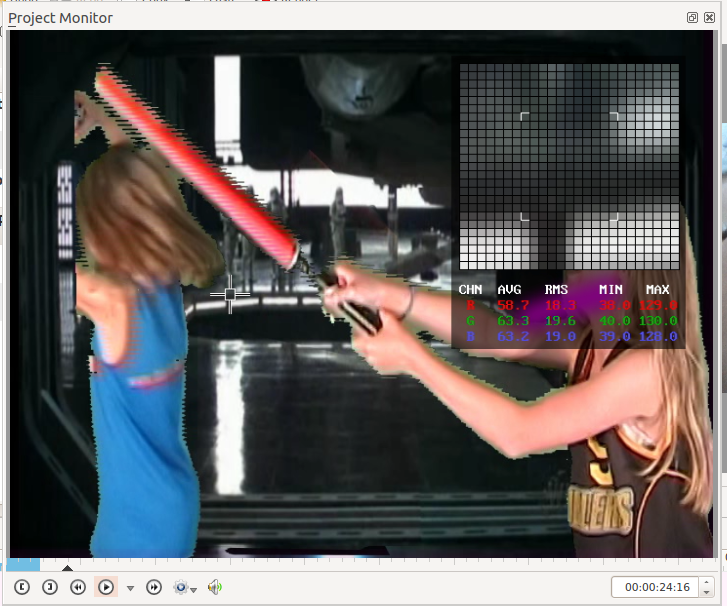Kdenlive/Manual/Effects/Misc/pr0be: Difference between revisions
mNo edit summary |
|||
| Line 6: | Line 6: | ||
It can display the following values: | It can display the following values: | ||
* RGB | * RGB | ||
* YCC in either rec 601 or rec 709 standards | * YCC in either rec 601 or rec 709 standards | ||
| Line 21: | Line 22: | ||
Pr0be can also be used to measure image noise. Just place the measurement rectangle on an uniform part of the image, that contains no image detail or gradient, and read the RMS value. | Pr0be can also be used to measure image noise. Just place the measurement rectangle on an uniform part of the image, that contains no image detail or gradient, and read the RMS value. | ||
{{Note|The values are displayed with a rather small font, so they might not be readable, if the image is not displayed at a big enough scale (1:1 pixel is optimum)}} | |||
Latest revision as of 15:40, 10 March 2013
Pr0be
This is a measurement tool, not an effect. It can show color values of single pixels or statistics of small rectangular areas. It is also useful as a pixel-peeping "loupe".
It can display the following values:
- RGB
- YCC in either rec 601 or rec 709 standards
- HSV
- HSL
The position and size of the measured area is set by the X, Y, Xsize and Ysize parameters. A small crosshair marker is shown in the image, where the measurement is being made.
If "256 scale" is checked, values are displayed as 0...255 integers, otherwise they are displayed as 0...1 floating point numbers.
If "Show alpha" is checked, alpha channel values are displayed too.
If "Big window" is checked, a bigger area around the center pixel is displayed in the "loupe".
Pr0be can also be used to measure image noise. Just place the measurement rectangle on an uniform part of the image, that contains no image detail or gradient, and read the RMS value.


